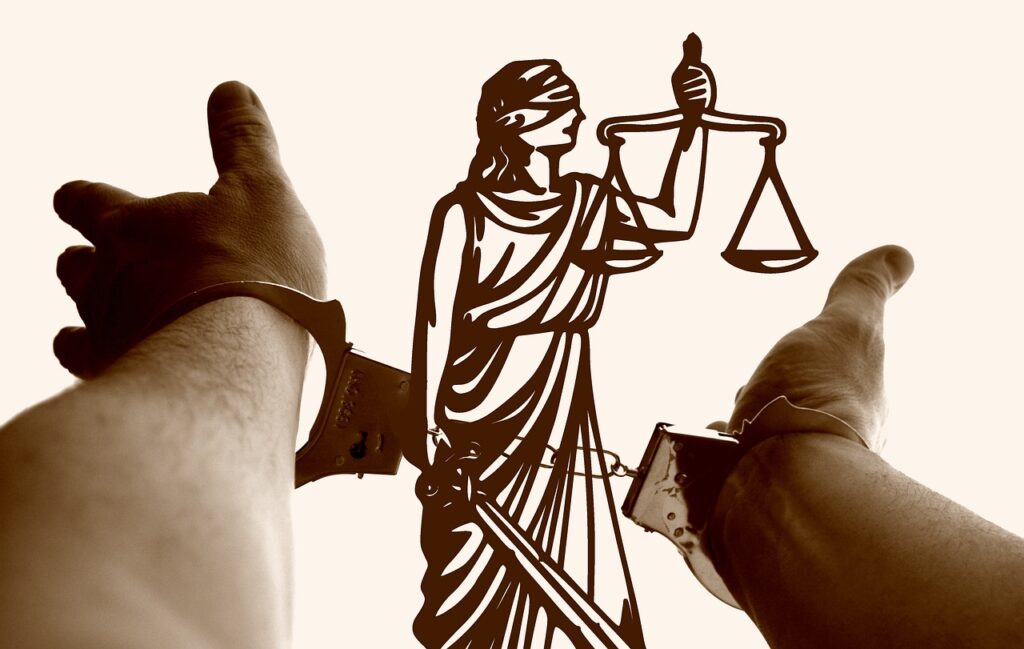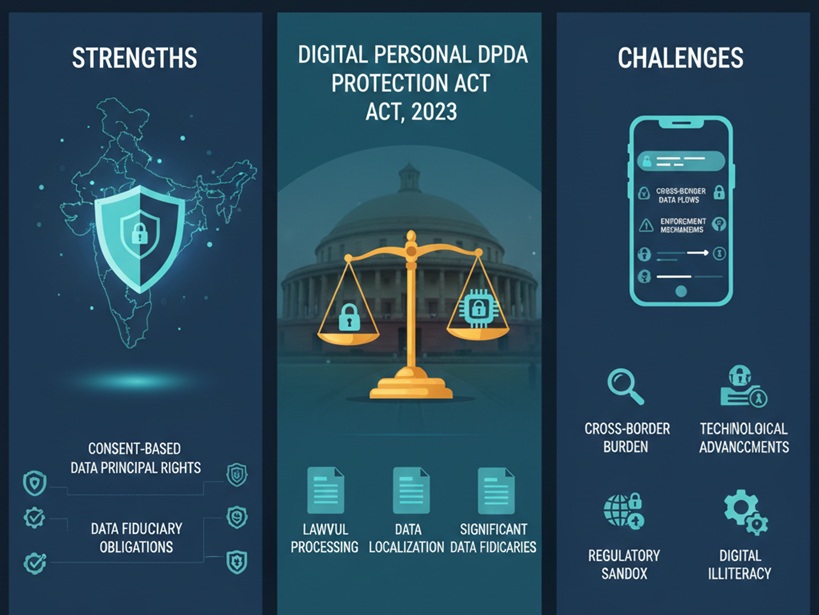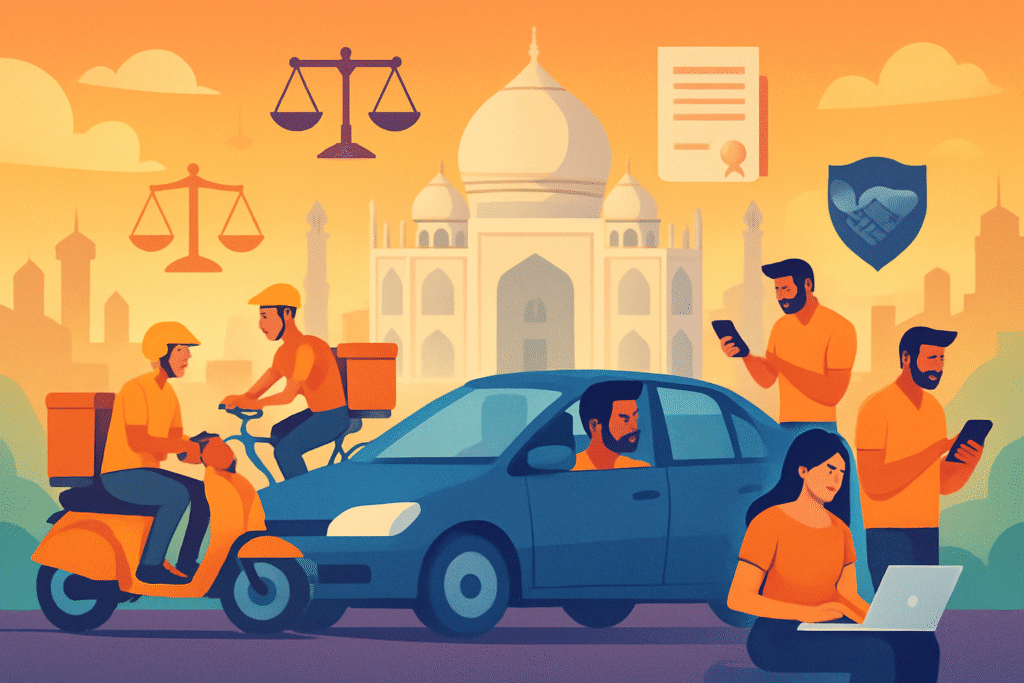Published On: 20th August, 2024
Authored By: Vanshika Chaudhary
University School of Law and Legal Studies, Guru Gobind Singh Indraprastha University
INTRODUCTION
Fundamental Rights are the basic human rights guaranteed to all Indian Citizens by the Indian Constitution. These rights are justifiable in nature. This means that a person can approach the court of law if his fundamental rights are violated. The court can issue writs in the nature of habeas corpus, mandamus, prohibition, certiorari, and quo warranto to restore a person’s fundamental rights.
This Article deals with the concept of fundamental rights in detail by introducing the concept of fundamental rights and explaining its meaning and evolution. It also classifies the different types of fundamental rights into different categories. Fundamental Rights can be classified as Right to Equality (Articles 14-18), Right to Freedom (Articles 19-22), Right Against Exploitation (Articles 23-24), Right to Freedom of Religion (Articles 25-28), Cultural and Educational Rights (Articles 29-30) and Right to Constitutional Remedies (Article 32).
The article also discusses the limitations that can be imposed on the fundamental rights of Indian citizens. These limitations must be in the nature of reasonable restrictions. Fundamental Rights can also be suspended during a period of Emergency. The article also elaborates on some landmark judgments on fundamental rights such as Kesavananda Bharati v. State of Kerala and Maneka Gandhi v. Union of India.
CLASSIFICATION OF FUNDAMENTAL RIGHTS
Fundamental Rights mentioned in the Indian Constitution can be delineated in the following categories:
Right to Equality (Articles 14-18)
- Equality before the law and prohibition of discrimination
According to Article 14[1] of the Indian Constitution, every citizen of India is equal before the law in all respects. Moreover, every citizen is also guaranteed equal protection of the laws under Article 14. According to Article 15[2] of the Constitution, the state cannot discriminate against any Indian citizen on any ground. This means that all Indian citizens will be treated equally irrespective of religion, race, caste, sex, and place of birth.
- Abolition of untouchability and titles
The age-old practice of untouchability has been abolished by Article 17[3] of the Indian Constitution as it was discriminatory in nature. Now, all forms of untouchability have been abolished in the Indian Constitution. The practice of untouchability is now punishable by law. Article 18[4] of the Indian Constitution abolishes all kinds of titles except military and academic titles. Also, no citizen of India is allowed to accept any title from any foreign state.
Right to Freedom (Articles 19-22)
- Freedom of speech and expression
The Constitution of India guarantees all citizens of India the freedom of speech and expression under Article 19[5]. This includes the right to assemble peacefully without any arms or ammunition, the right to form associations, unions, and cooperative societies, the right to move freely throughout the territory of India, and the right to reside and settle in any part of the territory of India.[6]
Clause 2 of Article 19 of the Indian Constitution lays down certain grounds for imposing reasonable restrictions on the fundamental right to speech and expression. “It enables the legislature to impose reasonable restrictions on the right to free speech ‘in the interests of’ or ‘in relation to’ the following”[7]:
- Sovereignty and integrity of state
- Security of the state
- Friendly relations with other states
- Public order
- Decency or morality
- Contempt of court
- Defamation
- Incitement to an offence
- Protection in respect of conviction for offenses
Article 20[8] of the Indian Constitution protects the citizens of India in respect of conviction for offenses. Clause 3 of Article 20[9] protects a person from self-incrimination by stating that no person can be compelled to be a witness against himself. Thus, Article 20 of the Constitution has three essential components:[10]
- It is a right pertaining to a person accused of an offense.
- It is a protection against compulsion to be a witness.
- It is a protection against such compulsion resulting in his giving evidence against himself.
- Protection of life and personal liberty
As per Article 21[11] of the Indian Constitution, no individual can be deprived of his life or personal liberty except according to procedure established by law. Article 21 has become the inexhaustible source of many rights.[12] It is available to the citizens of India as well as non-citizens. Following[13] types of rights fall under the ambit of the fundamental right to life and liberty:
- Rights of prisoners
- Rights of inmates of protective homes
- Right to legal aid
- Right to speedy trial
- Right against cruelty and unusual punishment
- Right of release and rehabilitation of bonded labor
- Right to compensation
- Right to know
- Right to choose a marriage partner
- Right to a fair trial
- Right against custodial violence and death in police lock-ups or encounters
- Right to human dignity
- Right to education
Article 21A[14] of the Indian Constitution states that the State must provide free and compulsory education to all children who are between six to fourteen years of age. For the proper implementation of this article, the Right of Children to Compulsory Education Act was enacted by the government in 2009. Under this Act, all children between the ages of six to fourteen years have the right to attain free and compulsory education. The provisions of this Act are applicable to government schools as well as private unaided schools.
Right Against Exploitation (Articles 23-24)
- Prohibition of human trafficking and forced labor
Article 23[15] of the Indian Constitution prohibits human trafficking, beggars, and all other similar forms of labor. Anyone who practices human trafficking, beggar, and other similar forms of labor is liable to be punished according to the legal provisions established for the same.
- Prohibition of employment of children in hazardous jobs
According to Article 24[16] of the Indian Constitution, children who are below fourteen years of age cannot be employed to work in any factory, mine, or any other hazardous industry. This provision has been made to protect children from exploitation as well as to ensure their safety and well-being.
Right to Freedom of Religion (Articles 25-28)
- Freedom of conscience and free profession, practice, and propagation of religion
India is a secular country and there is no state religion. In India, all individuals have the right to profess, practice, and propagate their religion. However, this must be done in accordance with the guideline laid in Article 25[17] of the Indian Constitution that is, subject to public order, morality, and health.[18]
-
Freedom to manage religious affairs
As per Article 26[19] of the Constitution, in India, “every religion, religious domination and any section of any religious domination have the right:
- to establish and maintain institutions for religious and charitable purposes
- to manage its own affairs in religious matters
- to own and acquire movable and immovable property
- to administer such property in accordance with law.”[20]
Cultural and Educational Rights (Articles 29-30)
- Protection of interests of minorities
Article 29[21] of the Indian Constitution states that all sections of Indians who have a distinct language, script, or culture have the right to protect and conserve their culture. It also states that no Indian citizen can be denied admission into any State-run or maintained educational institution on the grounds of religion, race, caste, or language.
-
Right of minorities to establish and administer educational institutions
As per Article 30[22] of the Indian Constitution., all religious and linguistic minorities have the fundamental right to establish and administer educational institutions of their choice.[23] The Government also established the National Commission for Minority Educational Institutions to regulate the establishment and functioning of such minority-run educational institutions.
Right to Constitutional Remedies (Article 32)
The right to Constitutional Remedies is provided in Article 32 of the Indian Constitution. It states that a person has the right to approach the Supreme Court of India for the enforcement of Fundamental Rights, guaranteed in Part III of the Indian Constitution.
- Right to move the Supreme Court for enforcement of Fundamental Rights
Under Article 32[24] of the Indian Constitution, every person has the right to approach the Supreme Court of India in cases where his fundamental rights have been violated. In such cases, the Supreme Court has the power to issue directions orders, or writs for the enforcement of the fundamental rights of that person. These writs can be in the nature of habeas corpus, mandamus, prohibition, quo warranto, and certiorari.
LIMITATIONS ON FUNDAMENTAL RIGHTS
- Reasonable Restrictions
Reasonable Restrictions can be imposed on the Fundamental Rights of Indian citizens. However, the Indian Constitution does not explicitly define the term “reasonable restrictions”. The test for reasonable restrictions varies from right to right which the law restricts.[25] “The factors which should enter the judicial verdict are the underlying purpose of the restrictions imposed, the extent and urgency of the evils sought to be remedied thereby, the proportion of the imposition, the prevailing conditions at the time, and the duration of the restrictions.”[26]
- Suspension of Fundamental Rights
Fundamental Rights guaranteed to citizens by Part III of the Indian Constitution can be suspended during an Emergency. Article 359[27] of the Indian Constitution deals with the suspension of the enforcement of fundamental rights during a proclamation of emergency. The President of India can declare an emergency under Article 352 in case of war, external aggression, or armed rebellion. During this period, all fundamental rights can be suspended except Articles 20 and 21.
JUDICIAL INTERPRETATION AND LANDMARK JUDGMENTS
- Kesavananda Bharati v. State of Kerala (1973)
In the case of Kesavananda Bharati v. State of Kerala[28], it was held by the Supreme Court that the Constitution of India has a basic structure and that this basic structure cannot be amended by the Parliament. This is known as the Basic Structure Doctrine.
The basic structure of the Constitution includes features like the rule of law, supremacy of the Constitution, separation of powers, judicial review, federal nature of the Constitution, secular nature of the Indian state, and democratic form of government, among others.
- Maneka Gandhi v. Union of India[29] (1978)
In the case of Maneka Gandhi v. Union of India, the constitutional validity of some provisions of the Passport Act,1967 was determined by the Court. The Supreme Court of India held that the right to go abroad is not included in Article 19(1) of the Constitution of India.[30]
CONCLUSION
The Fundamental Rights enshrined in the Indian Constitution are the bedrock of India’s democratic system, ensuring the protection and empowerment of the citizens. These rights, guaranteed under Part III of the Constitution, are crucial for maintaining the dignity, liberty, and equality of individuals. They are not just theoretical principles but practical tools that citizens can enforce through the judiciary, ensuring that any infringement can be challenged in a court of law.
The classification of Fundamental Rights into six broad categories – Right to Equality, Right to Freedom, Right Against Exploitation, Right to Freedom of Religion, Cultural and Educational Rights, and Right to Constitutional Remedies – highlights the comprehensive nature of these protections. Each category addresses different aspects of human dignity and societal fairness, reflecting the diverse and inclusive spirit of the Indian Constitution.
Moreover, while these rights are fundamental, they are not absolute. The Constitution allows for reasonable restrictions to balance individual rights with the interests of the community and the state. This balance ensures that the exercise of these rights does not infringe upon public order, morality, or the sovereignty of the nation. The provision for suspension of Fundamental Rights during emergencies, though controversial, underscores the necessity of prioritizing national security and integrity during critical times.
Landmark judgments like Kesavananda Bharati v. State of Kerala and Maneka Gandhi v. Union of India have significantly shaped the interpretation and application of Fundamental Rights. These rulings have reinforced the importance of the Basic Structure Doctrine and expanded the scope of personal liberties, demonstrating the dynamic and evolving nature of constitutional law in India.
In conclusion, Fundamental Rights form the cornerstone of India’s democratic ethos. They empower citizens, safeguard their freedoms, and promote social justice. The judiciary’s role in interpreting and upholding these rights ensures that they remain robust and relevant in addressing contemporary challenges. As India continues to evolve, the protection and enhancement of these rights will remain crucial in achieving a just, equitable, and inclusive society.
Reference(s):
[1] The Constitution of India, Constitution, Jan. 26, 1950, (India).
[2] Ibid.
[3] Ibid.
[4] Ibid.
[5] Ibid.
[6] Article 19, The Constitution of India, Constitution, Jan. 26, 1950, (India).
[7] Shukla V.N., ‘Fundamental Rights’, Constitution of India 138-149 (14th ed, Eastern Book Company 2022).
[8] The Constitution of India, Constitution, Jan. 26, 1950, (India).
[9] Ibid.
[10] Shukla V.N., ‘Fundamental Rights’, Constitution of India 191 (14th ed, Eastern Book Company 2022).
[11] The Constitution of India, Constitution, Jan. 26, 1950, (India).
[12] Shukla V.N., ‘Fundamental Rights’, Constitution of India 197 (14th ed, Eastern Book Company 2022).
[13] Ibid.
[14] The Constitution of India, Constitution, Jan. 26, 1950, (India).
[15] Ibid.
[16] Ibid.
[17] Ibid.
[18] Article 25, The Constitution of India, Constitution, Jan. 26, 1950, (India).
[19] Ibid.
[20] Ibid.
[21] Ibid.
[22] Ibid.
[23] Article 30, The Constitution of India, Constitution, Jan. 26, 1950, (India).
[24] The Constitution of India, Constitution, Jan. 26, 1950, (India).
[25] Shukla V.N., ‘Fundamental Rights’, Constitution of India 132 (14th ed, Eastern Book Company 2022).
[26] Ibid.
[27] The Constitution of India, Constitution, Jan. 26, 1950, (India).
[28] AIR 1973 SC 1461.
[29] AIR 1978 SC 597.
[30] Ibid.




